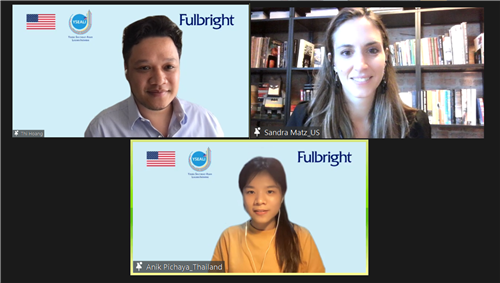The past six years have seen a doubling in the number of active users on social media platforms across the world, from 2.07 billion people to 4.66 billion. The pandemic has dramatically accelerated this adoption of digital platforms. In Southeast Asia, it is estimated that the user base of Facebook has grown fivefold from less than 100 million in 2010 to almost half a billion in 2021. As old and new social media users roam the internet, they leave behind trails of “electronic breadcrumbs” of their information. Scientific efforts to trace and make sense of these digital footprints have unlocked nothing short of a pandora’s box.
“Big Data has become such a mainstream buzzword, yet not many recognize its omnipresence and omnipotence in our daily lives. It turns out that our digital footprints and yield surprisingly crisp insights into our psychology”, says Dr. Sandra Matz at a distinguished lecture in YSEALI Academy’s Technology and Innovation flagship seminar.
Venturing out into this uncharted water of wreathed acumen from psychologists and data scientists, we are tapping into the nascent field of computational psychology, where Sandra is pushing the frontiers through her research and public engagement.
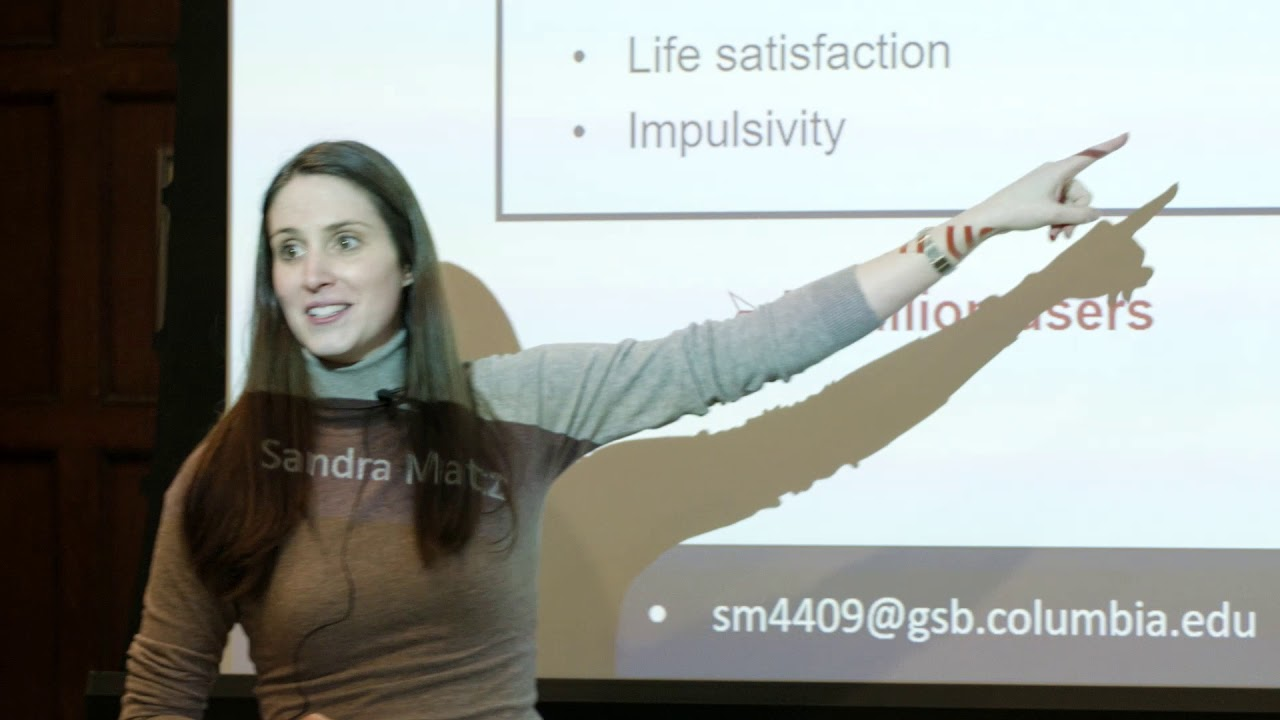
Dr. Sandra Matz, an award-winning professor at Columbia University
Blurring boundaries of the cyberspace
The Internet of Things connects us all, “but there is also cost to it as we transitioned to the digital world: suddenly we are just numbers in the system,” Sandra points out. We can collect data about someone, but our understanding is still essentially very numeric. Machine Learning and Artificial Intelligence can interpret us in a gazillion dimensions, but that is not how we think about each other. Humans are not just numerical data points, humans are much more holistic: we have emotions that are usually momentary, we have personalities that tend to be more stable, and we behave differently in different social contexts.
As technology advances, there grows this disconnection between our curated identity online, on the Big Data pool, and what happens in the offline world. Often time, we equate the digital economy with things that happen online, but “it is really an economy that is based on digital computing” – Dr. Matz explicates. This is where her expertise in psychological profiling comes in to close the gap, to translate the digital footprints of data points into human interpretable profiles that operate on the psychological level. Rather than inviting people in for in-depth surveys to understand their wiring like the traditional approach, computational psychologists like Sandra can observe consumer behaviors from electronic breadcrumbs to make inferences about their personal and psychological identities.
In 2015, a group at Cambridge University where Sandra did her Ph.D. discovered that an algorithm analyzing the pattern of our Facebook likes can predict major aspects of our personality. Using the well-established OCEAN theory, where personality is categorized in five dimensions (openness, conscientiousness, extroversion, agreeableness, and neuroticism), the scientists showed that with only 10 likes, the algorithm can predict these personality traits as well as a co-worker can. Given 70 likes, the algorithm was able to predict as accurately as a friend. With 300, it was more successful than the person’s spouse.
This study was done six years ago with the average Facebook likes being 230 per test subject. But when it comes to digital footprints, social media is only half of the pie.
Replicating offline connections in an online world
What we post and how we interact on Facebook are usually the versions of ourselves that we want to put out there, to express ourselves, to create this identity that reflect partly who we are and partly how we want to be perceived. Beyond social media, there are myriad other traces of our behavioral residue, those that were not intentionally put out there but still capture aspects of our lives, e.g. credit cards, smartphones, digital wearables, and location tracking. Now, combining all of these can make up billions of data points about each person, and the computer can easily make sense of that and outperform everyone in our immediate circle in psychoanalyzing us, predicting our next move.
One of the most fascinating topics that Dr. Matz touched on was the incredible capability of Big Data in tracing people’s digital footprints to cultivate customer centricity experience and enhance customer satisfaction. If in the 1700s, all transactions were personal because they all had to be done face to face and most likely limited with the same people in town, nowadays, the picture is completely flipped. Even with the worldwide social distancing restricting almost all personal interactions between the sellers and the buyers, we still have access to goods and services from across the world.
The questions then arise: “How can we provide small-scale service [like the 1700s] in a large-scale economy [with e-commerce]? How can we replicate some of the personal touchpoints to make the customers feel like there is someone on the other side of the screen who really understands them, yet does not require constant checking up on one another? The answer will not be very surprising – it really lies in data.”
Sandra teamed up with a beauty retailer in the United Kingdom to test the efficiency of personality-targeted ads in engaging and converting casual internet browsers into loyal customers. Essentially, they created different ads for the same product, with tailored messages and images to fit better with the extraversion and openness of the consumers.
The result was astonishing: there was a 50% uptick in the number of purchases from customers who saw matched ads in comparison to the mismatched ones, and more than just a boost in sales, it also increased the consumers’ happiness and satisfaction level. Another application is to advertise different products based on the customers’ psychological appeal, and as expected, the model also performed with statistical precision. This was the academic breakthrough that put Dr. Sandra Matz’s name in the world’s leading scientific journals and major news outlets around the world (e.g. Wall Street Journal, Washington Post, BBC, and the World Economic Forum).
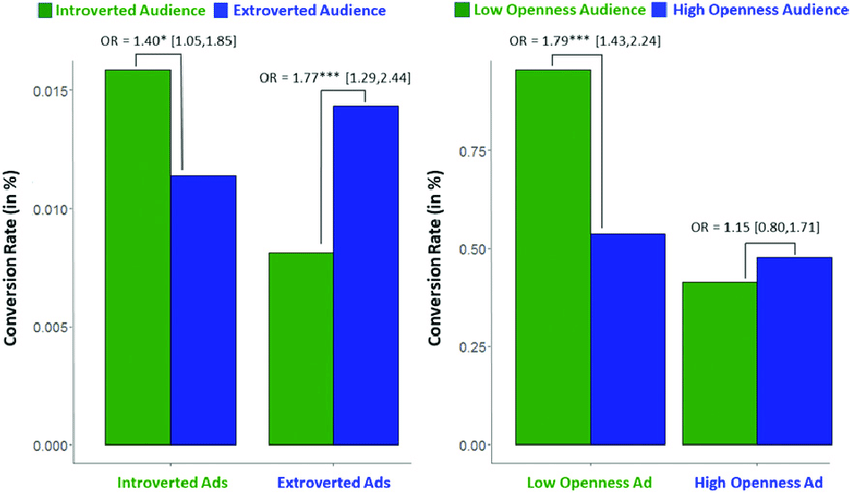
Dr. Sandra Matz’s research showed a significant yield in conversion rate for personality traits’ matched ads compared to the mismatched ones.
Limiting the limitless possibilities of utilizations
Digital transformation comes with great advantages because now everything can be easily catered to us at our fingertips, it becomes incredibly convenient to find everything on the first page rather than having to look through the enormous amount of information on the internet. Dr. Matz believes that the infinite possibility of utilizations “can be incredibly powerful and used as a source for good. For me, this is only the beginning.”
Digital footprints elevated with psychological profiling unlock the door to endless potential. More than just businesses’ targeted ads, psychological profiling can be applied to education and healthcare to predict symptoms and offer preventive action plans. On the other hand, Big Data collection also brings up a host of ethical and privacy challenges. Recalling the US Presidential Election in 2016, we have witnessed one of the biggest data privacy breaches: Cambridge Analytica harvested over 50 million Facebook profiles of US voters to predict their political ideologies and send targeted ads to influence their choices at the ballot box.
These breaches emerge from the ease of amassing data and pose immense threats to privacy and self-determination. Right now, it is merely no cost to collect the data so companies tend to crawl all they can and save for potential future uses. Sandra points out the need for novel data governance policies to address these ethical concerns. For example, if there were a tax on every data point collected, it could force tech giants to think carefully about their prospective products and their improvement towards consumer benefits.
Kranzberg’s First Law states that “Technology is neither good nor bad, nor is it neutral.” Technology does not determine cultural and social outcomes, but it can also propagate disparate results. There are so many technologies out there that have the potential to do amazing things, to change the lives of individuals, to accelerate business, and to make society better. “At the same time, there are a lot of questions around privacy abuse, and in which direction we take this technology truly depends on leadership, essentially, on you,” Dr. Sandra Matz entrusts this upon YSEALI Fellows. How to govern Big Data in a more accountable manner is still a tough question that has yet to find a conclusive answer. “With great power comes great responsibility. We have infinite opportunities with Big Data, and the future is in the way we implement it.”
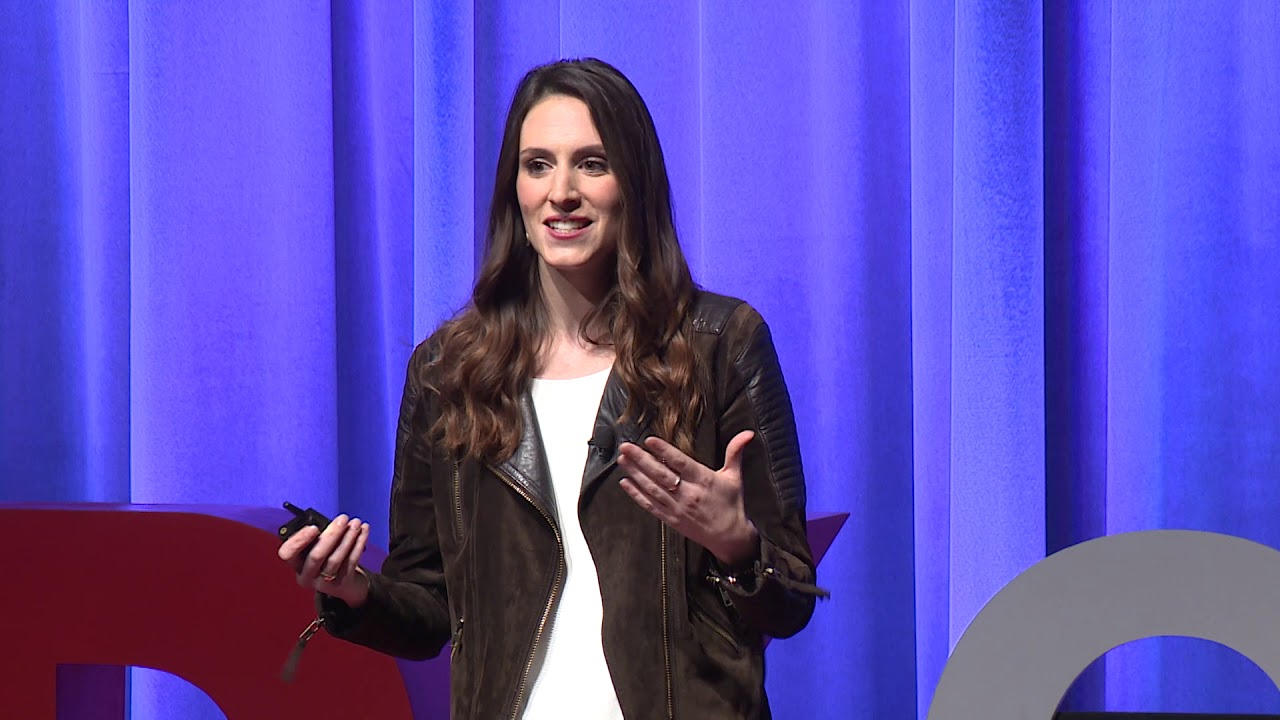
***Sandra Matz is the David W. Zalaznick Associate Professor of Business at Columbia Business School. Obtained her Ph.D. in Psychology from the University of Cambridge, she is an expert in analyzing human behavior using a combination of Big Data analytics and experimental methods. As a prolific researcher, Matz has more than 1,700 Google Scholar citations. Her research has made a massive impact both in academia and society and has garnered media coverage from major publications like Forbes, BBC, and Inc among others. She has won numerous awards, including Data IQ’s most influential people in data-driven marketing, Pacific Standard’s 30 top thinkers under 30, Accenture Innovation Award, and Poets and Quants 40 under 40 best business school professors.
Dr. Hoàng Hà Thi – Hoàng Bảo Trâm
Related Articles
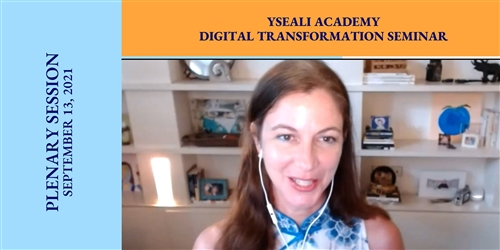
YSEALI Academy: Stephanie Davis of Google on Digital Transformation

YSEALI Academy Fellow Feature: Le Xuan Khoa




